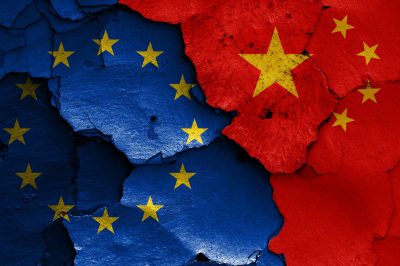Centuries of interaction between China and Europe can be traced to the historic Silk Road, which connects both societies through trade and cultural interchange. More recently, changes in China-Europe Relations, diplomatic connections, economic alliances, and shifting geopolitical environments have all impacted this relationship. The magnitude of their combined financial and political power speaks volumes about the significance of this partnership.
Economically, an enormous power is the Europe-China axis. China’s trade with the European Union, one of its main trading partners, has increased dramatically in capital, goods, and services. European enterprises have discovered a big market in China, and this economic interdependence has been underlined by significant investments from Chinese companies in Europe’s energy, technology, and infrastructure sectors. Though it has also sparked worries about debt dependency and geopolitical influence, China’s massive infrastructure project, the Belt and Road Initiative, has further strengthened economic relations.
The complex dance of technological competition and cooperation between China and Europe demonstrates the depth of their relationship. European enterprises have greatly influenced China’s technology environment, particularly in sectors like the automotive industry, where European engineering and design know-how is essential. In a similar vein, European businesses have had a significant impact on the renewable energy space, contributing to China’s ambitious green energy projects. European companies have played an essential role in the high-tech manufacturing industry by providing advanced machinery and components to grow China’s manufacturing capabilities.
The transfer of technology is one of the main factors contributing to China’s explosive industrial growth and rise to prominence as a global manufacturing powerhouse. Conversely, Chinese tech firms have achieved notable advancements in European markets. Once mainly domestic brands in China, these companies now have household names in Europe and sell everything from consumer electronics to telecom gear. Chinese businesses have invested in European IT companies, R&D facilities, innovation hubs, and exporting goods.
Politically, China and Europe are complex and characterized by harmony and conflict. They actively partner on global challenges, demonstrating their ability to collaborate towards shared objectives. Meanwhile, they dynamically manage contrasting views on human rights, governance, and strategic alignments, reflecting the intricate nature of their diplomatic engagement. Climate change mitigation is one area in which China and Europe have reached an understanding. To tackle climate change, both have committed to setting high goals under the Paris Agreement and participating in several bilateral and multinational projects.
Given that China and Europe are two of the world’s largest emitters, their combined efforts can substantially reduce emissions worldwide, so this cooperation is essential. Another arena where competition and collaboration exist is economic governance. As important trading partners, China and Europe’s economic actions significantly impact the world economy. They have collaborated to advance global financial stability in forums like the G20. Friction is, however, frequently caused by problems with trade imbalances, investment screening, and market access.
Also Read: MCC seeks to expand investment in Mineral and Mining sector in Pakistan
Governance models present another area of distinction: the one-party state of China and the democratic systems in Europe. This results in different perspectives on individual rights, freedom of speech, and government. These distinctions can cause diplomatic problems and impact cooperation in other domains. Strategic partnerships add to the relationship’s complexity. Europe is frequently at odds with China because of its ties to the US, mainly through NATO, especially in light of the growing competition between the two countries.
This dynamic pushes European countries to undertake a delicate balancing act between preserving strong transatlantic relations and interacting with China. China is a major economic partner and a vital participant in global events. Security concerns have also taken the front stage in the partnership. European countries struggle to strike a balance between their long-standing alliances, especially with the US. The emergence of China as a significant power has ramifications for regional and international security. It encompasses cybersecurity, NATO’s function, and maritime conflicts in the South China Sea.
China and Europe have fostered mutual perspectives and understanding through cultures and interpersonal connections. Tourism, cultural events, and educational exchanges have all flourished, promoting a greater understanding of one another’s histories and modern societies. In soft diplomacy, these interactions are essential for reducing tensions and laying the groundwork for closer bilateral ties. Relations between China and Europe are now more complicated due to the COVID-19 outbreak.
A coordinated worldwide response to global crises is vital, and the epidemic has worked as a catalyst. The Sino-European partnership has potential as well as challenges in the future. China and Europe will forge their future ties. As they adapt to changing political dynamics, drive global economic innovation, and harness technological breakthroughs. China and Europe both want to safeguard their interests while promoting security and prosperity on a worldwide scale. So, navigating these difficulties will require careful balancing between rivalry and collaboration.
China and Europe have woven an intricate tapestry of relations, with multiple threads of cooperation, competition, and complexity intertwined. For instance, political diplomacy, security concerns, cultural exchanges, economic interdependence, and shared global challenges. Their contacts will continue to be crucial in forming the international order as these two global actors advance.

International Relations student with solid academic basis in Diplomatic Relations, International Law and Intercultural Communication. Her writings focus on international relations, feminism and current trends.







